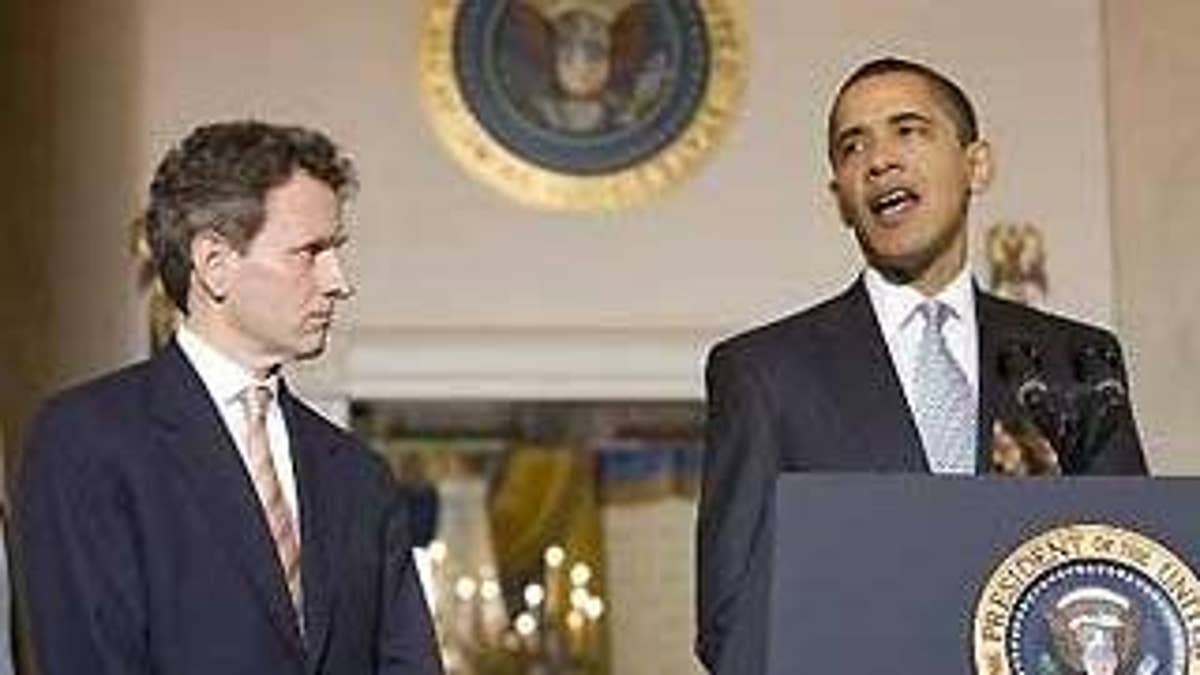
President Obama said Monday his administration has "no intention" of running General Motors, even as the White House demanded the resignation of the automaker's CEO and called for a "better business plan" before considering lending more government money to bail out the company.
The president said he was seeking "painful concessions" from GM and Chrysler, but he insisted that he does not want them to become "wards of the state."
But he said neither company has submitted an acceptable restructuring plan, so he's giving them additional time to come back with new proposals.
"These companies -- and this industry -- must ultimately stand on their own, not as wards of the state," Obama said at the White House.
Obama spoke after the White House forced GM CEO and Chairman Rick Wagoner to step down. The president said the move was not a "condemnation" of the chairman -- rather a "recognition that it will take a new vision and new direction to create the GM of the future."
He said his interest lies in giving the company the opportunity to make "much-needed changes" so that it can emerge profitable and competitive.
"Let me be clear. The United States government has no interest in running GM. We have no intention of running GM," Obama said.
GM and Chrysler, which employ about 140,000 workers in the U.S., faced a Tuesday deadline to submit completed restructuring plans, but neither company is expected to finish its work.
Instead, the administration will give Chrysler 30 days to work out a deal with Fiat and GM 60 days to come up with a new restructuring plan.
"We cannot, and must not, and we will not let our auto industry simply vanish," Obama said. "This industry is like no other, it's an emblem of the American spirit ... And we cannot continue to excuse poor decisions. And we cannot make the survival of our auto industry dependent on an unending flow of taxpayer dollars."
Obama warned that these plans won't prevent future hardships.
"There are jobs that won't be saved, there are plants that may not reopen," he said.
Obama said the companies and the government might have to consider "using our bankruptcy code" to help the companies restructure more efficiently. He said any such action would take place "with the backing of the U.S. government."
The Obama administration, however, has decided not to require the automakers to immediately repay government loan money they previously received, since that would force both companies into Chapter 11 bankruptcy.
A senior administration official told FOX News, "calling in the loans would not be a productive exercise for the American taxpayer since the companies don't have the money [to repay the loans] and it would simply put the companies into uncontrolled Chapter 11."
A senior official said, "bankruptcy is not the goal," although there may be a "role for a court-supervised process to effect the restructuring ... different from Chapter 11."
Two additional parts of the plan include the government standing behind both car companies' warranties during the restructuring periods and the White House naming a Labor Department official to minimize the impact of restructuring on communities where auto plants are located, by coordinating support for workers and their families.
Neither company is viable now, but Chrysler is an almost purely domestic company that has passed through several ownership changes and is not considered viable as a standalone company.
Officials say they are "confident GM can survive and thrive as a company ... but it will take more significant restructuring."
No decision has yet been made about how much working capital the government will provide GM during the restructuring period.
Chrysler's potential deal with Fiat has a couple requirements: Fiat's ownership must initially be less than the 35 percent U.S. government stake in the company, and it's not to rise above 49 percent until the new loan money is fully repaid. Chrysler will be provided up to $6 billion if it reaches an agreement acceptable to the government. If Chrysler does not reach such an agreement, Obama said it will not receive additional taxpayer money.
Obama aides had substantial criticism of bondholders, saying not only did GM's bondholders fail to meet the targets for reducing the company's liability under the loan agreement, but the loan agreement's target weren't adequate for the current market environment.
Officials denied Wagoner's resignation was demanded as a condition for receiving more government aid. One official said "we wanted to start GM with a clean sheet of paper. We felt the change in leadership would assist that."
The Bush administration late last year approved $17 billion in federal funds to help GM and Chrysler survive. GM took $13.4 billion in government loans. Chrysler, meanwhile, has survived on $4 billion in federal aid during this economic downturn and the worst decline in auto sales in 27 years.
The Bush administration demanded both companies submit restructuring plans that the Obama administration would review. In progress reports filed with the government in February, GM asked for $16.6 billion more and Chrysler wanted $5 billion more.
The Associated Press contributed to this report.




